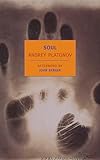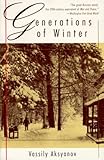So that you may get to know us better, it’s The Millions Quiz, yet another occasionally appearing series. Here, as conceived of by our contributor Emily, we answer questions about our reading habits and interests, the small details of life that like-minded folks may find illuminating, and we ask you to join us by providing your own answers in the comments or on your own blogs.
Today’s Question: In honor of the 10th anniversary of NYRB Classics: What out-of-print book would you like to see become an NYRB Classic?

 Emily: With presses like Dover, Everyman, the Library of America, Broadview, NYRB, and the Persephone Press (not to mention Oxford and Penguin classics series) doing excellent rediscovery and reprinting work of all kinds, I don’t often find myself longing for a new edition. The one great—nay, I would go so far as to say glaring—exception is the work of Ogden Nash, perhaps best know for epigrams like “Candy/Is dandy/But liquor/Is quicker” and “The Cow”: “The cow is of the bovine ilk;/One end is moo, the other, milk.” Yes, there is a “best of” anthology arranged by Nash’s daughters and printed by Ivan R. Dee, and, yes, he’s in Library of America’s American Wits: An Anthology of Light Verse, but what I long for is a chronological, scholarly “complete works” volume: I want America’s great comic poet to be taken seriously.
Emily: With presses like Dover, Everyman, the Library of America, Broadview, NYRB, and the Persephone Press (not to mention Oxford and Penguin classics series) doing excellent rediscovery and reprinting work of all kinds, I don’t often find myself longing for a new edition. The one great—nay, I would go so far as to say glaring—exception is the work of Ogden Nash, perhaps best know for epigrams like “Candy/Is dandy/But liquor/Is quicker” and “The Cow”: “The cow is of the bovine ilk;/One end is moo, the other, milk.” Yes, there is a “best of” anthology arranged by Nash’s daughters and printed by Ivan R. Dee, and, yes, he’s in Library of America’s American Wits: An Anthology of Light Verse, but what I long for is a chronological, scholarly “complete works” volume: I want America’s great comic poet to be taken seriously.
Those who’ve only encountered “Custard the Dragon” or Nash’s epigrams (my favorite, which he composed with Dorothy Parker: “Hoggamus higgamus,/ Man is polygamous,/ Higgamus hoggamus,/ Women monogamus”), might question whether Nash is a serious artist deserving of such attention, but if you’ve read poems like “Don’t Look Now, But Your Noblesse Oblige Is Showing,” “Curl Up And Diet,” “Don’t Wait, Hit Me Now!”, or “Bankers Are Just Like Anybody Else, Except Richer”, you know that Nash is a keen social observer with a satirical edge (an edge sharpened by the Great Depression), and an approachable, conversational stylist reminiscent of Frank O’Hara (think “Ave Maria”). Nash’s conversational style sometimes obscures his sparkling wordplay (Cole Porter-ish), his deft, innovative use of meter, and his subtle allusiveness, but look again at poems like “Pastoral” or “Portrait of the Artist as a Prematurely Old Man” or “Columbus.”

 Garth: This year, a panel at the PEN World Voices festival prompted me to explore the work of an author who was barely on my radar: Andrey Platonov. I devoured The Foundation Pit in one gulp, on a plane, intoxicated by the discovery of a sensibility as potent, distinctive, and hard to describe as Kafka’s. I’ve since moved on to the stories in Soul, in an impressive translation by Robert & Elizabeth Chandler and Olga Meerson. A certain novelist friend of mine, who’s also a reputable critic, assured me that Platonov’s other major novel Chevengur, is even better than The Foundation Pit, and that a Chandler translation already exists…in the U.K. Apparently, the unreconstructed character of Platonov’s socialism makes Chevengur a tough sell for U.S. audiences. His response to Stalinism was not to abandon utopia, but to turn it into an organizing principle for his art. Still, this is one of the major stylists of his age. We deserve to have his work in print domestically, no matter how undomesticated it may be.
Garth: This year, a panel at the PEN World Voices festival prompted me to explore the work of an author who was barely on my radar: Andrey Platonov. I devoured The Foundation Pit in one gulp, on a plane, intoxicated by the discovery of a sensibility as potent, distinctive, and hard to describe as Kafka’s. I’ve since moved on to the stories in Soul, in an impressive translation by Robert & Elizabeth Chandler and Olga Meerson. A certain novelist friend of mine, who’s also a reputable critic, assured me that Platonov’s other major novel Chevengur, is even better than The Foundation Pit, and that a Chandler translation already exists…in the U.K. Apparently, the unreconstructed character of Platonov’s socialism makes Chevengur a tough sell for U.S. audiences. His response to Stalinism was not to abandon utopia, but to turn it into an organizing principle for his art. Still, this is one of the major stylists of his age. We deserve to have his work in print domestically, no matter how undomesticated it may be.
 Max: I was introduced to Vasily Aksyonov via his epic Generations of Winter. Here is the twentieth-century Russian analog of the multi-generational epic, tracking the Gradov family through the tragic and tumultuous decades spanning 1925 to 1945. It is a historical period deserving of the weightiness of the once exiled Aksyonov’s novel, and yet the book is not widely known or read. But at least it is still in print. The rest of Aksyonov’s books are unavailable in the U.S.
Max: I was introduced to Vasily Aksyonov via his epic Generations of Winter. Here is the twentieth-century Russian analog of the multi-generational epic, tracking the Gradov family through the tragic and tumultuous decades spanning 1925 to 1945. It is a historical period deserving of the weightiness of the once exiled Aksyonov’s novel, and yet the book is not widely known or read. But at least it is still in print. The rest of Aksyonov’s books are unavailable in the U.S.
While Generations of Winter was published after the fall of the Soviet Union (it became a mini-series on Russian television), his dissident novels, originally banned from the Soviet Union, may be more important. The New York Times this year called The Burn and The Island of Crimea “increasingly phantasmagoric and outspoken in their dissidence.” The Burn, the Times said “is a surreal, jazz-inspired riff on the plight of intellectuals under Communism, and Island of Crimea imagines what life would have been like on the Black Sea peninsula if the White Army had staved off the Bolsheviks there during the Russian Civil War and their descendants had flourished.” See also: Vasily Aksyonov, Giant of Russian Literature, Dies at 76; Sonya’s recent championing of another hard-to-find contemporary Russian author.
Let us know what out-of-print books you’d like to see returned to print.








